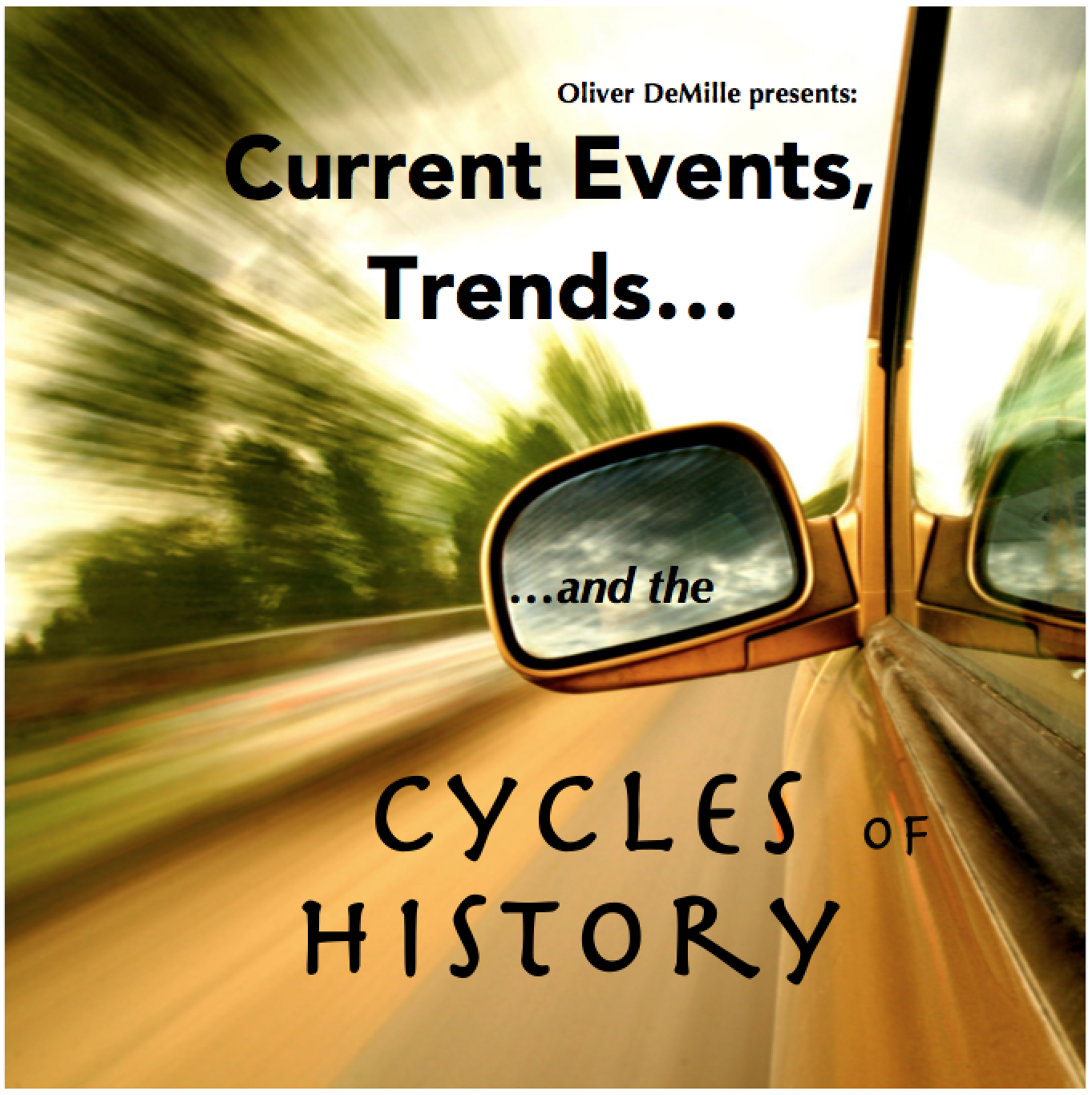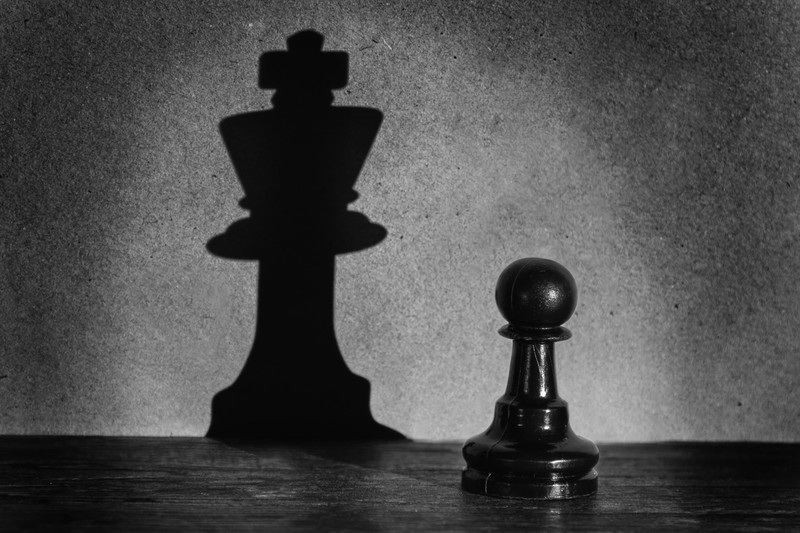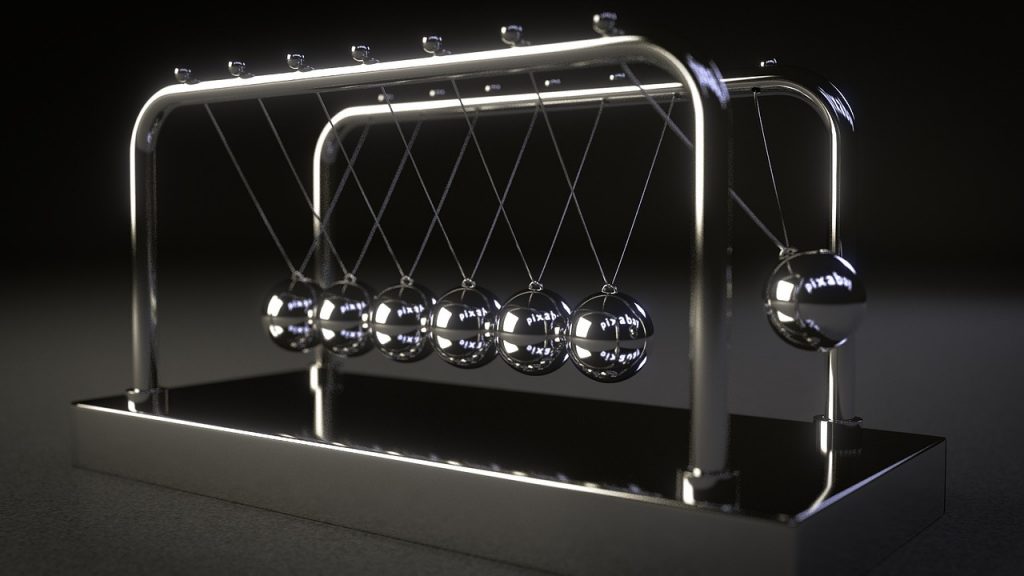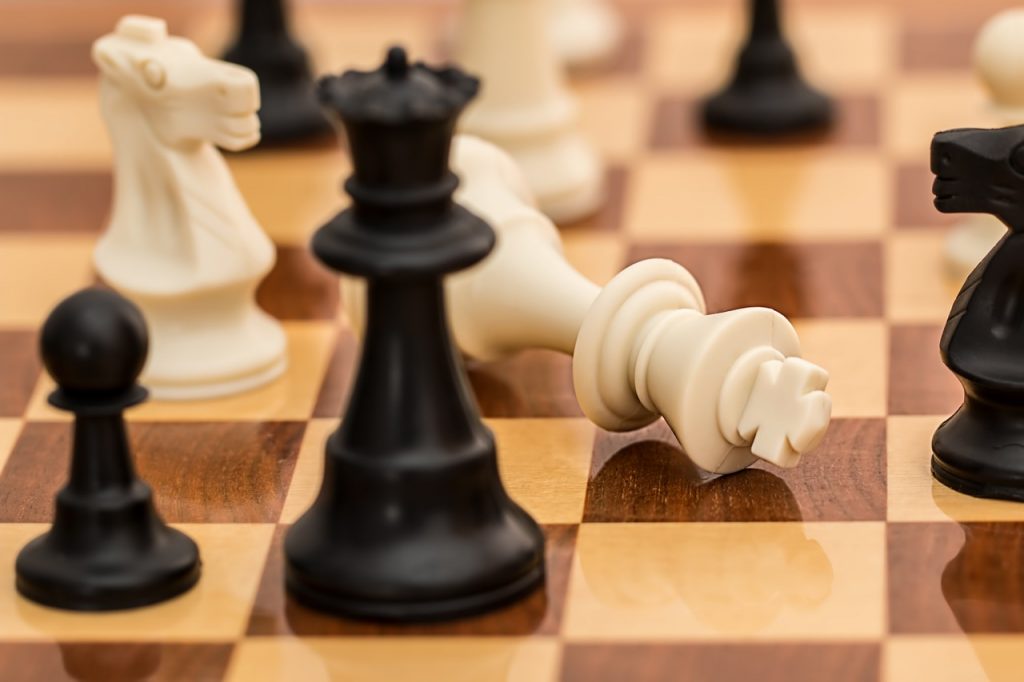Crisis upon Crisis:
May 29th, 2017 // 4:01 pm @ Oliver DeMille
Comey’s Firing, Trump and Russia, Hillary’s Emails, Obama and Surveillance, a Special Counsel,
Spying on Americans, etc., etc., etc…
WHAT WE REALLY NEED RIGHT NOW
 If the newly appointed Special Counsel investigates only President Trump and collusion with Russia, or obstruction of justice with James Comey, and doesn’t investigate and find the facts about alleged impropriety with Clinton’s emails, possible illegal acts of the Clinton Foundation, alleged Obama surveillance of political opponents, unlawful unmasking, and illegal leaks from government employees, we’ll know without a doubt that the entire operation is an elite liberal witch hunt. If the Special Counsel only investigates the Clinton and Obama teams, in contrast, we’ll know it’s conservative McCarthyism.
If the newly appointed Special Counsel investigates only President Trump and collusion with Russia, or obstruction of justice with James Comey, and doesn’t investigate and find the facts about alleged impropriety with Clinton’s emails, possible illegal acts of the Clinton Foundation, alleged Obama surveillance of political opponents, unlawful unmasking, and illegal leaks from government employees, we’ll know without a doubt that the entire operation is an elite liberal witch hunt. If the Special Counsel only investigates the Clinton and Obama teams, in contrast, we’ll know it’s conservative McCarthyism.
This is the good news. Put bluntly: As these investigations proceed, we’ll know clearly if we have a fair and open government, or if our nation is truly controlled by a small group of elites. It’s that cut and dried.
Part I
Before we get to the bad news, however, let’s back up and see how we got to this point. In the current news about the Justice Department, special counsel investigations, interference from the White House in investigations, etc., one word keeps popping up: “constitutional.” In reality, this word is out of place in such conversations. Of course the White House, Justice Department and other government entities should work within the Constitution. But for most Americans, especially those who have actually read the U.S. Constitution, how all this fits into the seven Articles of the Constitution and the Bill of Rights, Preamble, Amendments or checks and balances is pretty fuzzy.
Talking heads tell us that one leader (Trump) isn’t following the Constitution, while other pundits say the other party was the problem (Obama, Clinton, etc.). Anyone who consults the Constitution will find that it doesn’t contain the answer. Why? Because when most experts use the word “constitutional” while discussing these topics, they mean something different than following the Constitution as written.
This cuts to the heart of one our biggest modern challenges. There are two main meanings of the word “Constitutional.” On the one hand, “constitutional” means “as contained and outlined in the words of the Constitution.” This is what the American Framers and Founders meant by “constitutional.” The second meaning is more complex, and includes numerous decisions, commentaries and traditions from the Supreme Court, cases and interpretations from various lower courts, and even certain historical (before 1787) and international court decisions, writings, and traditions (before and since 1787). In this second definition, the regular citizen is left at the mercy of experts to know the truth—and the experts frequently disagree with each other on specifics and details.
Put simply, there are two competing traditions of what is “constitutional” versus “unconstitutional.” For the Framers, there were two ultimate categories of manmade law: Constitutional Law (rules written and ratified by the people telling a government what it can and cannot do; found in a constitution), and Governmental Law (rules established by a government telling the people what they cannot do). This is the first definition of Constitutional Law, what could easily be called the American Model of Law.
Another tradition, the Roman Model of Law, later known as Continental Law (the continent in question was Europe through most of the middle ages), held that constitutional law is whatever the government says—to the people, to itself or its branches and parts, and to anyone else. W. Cleon Skousen called this Ruler’s Law. In modern America, this second approach sees “Constitutional Law” as something determined by the Court, something everyone else is bound to follow—even when the Court differs with the actual words of the Constitution itself.
In the American Founding view of constitutions, the people created a Constitution as an ultimate check on government. This was a great power designed to keep the people free from rule by any dominant group of elites. According to the second, revisionist view, in contrast, the courts are supreme above the people, the government, and the document itself, though in the case of the document, the Court’s supremacy consists of the self-proclaimed power to tell everyone else what the document actually means. Thus the American Framers gave us a federal government with three branches and gave the people the power to read the Constitution and hold the government to the document’s specific words, while today’s legal theory is that the Court has the authority to read the Constitution, interpret it at will, and keep the other branches of government and the people in check. This is a very negative shift.
Most Americans today have been taught, bought into, or at least acquiesce to the second view. This constitutes perhaps the biggest threat the United States has ever faced to the original intent of the Framers and the future freedoms of the American people.
Let’s apply this directly to current events. When told that certain actions of, for example, the Justice Department are constitutional, or unconstitutional, a person from the Founding Fathers viewpoint would immediately want to ask: “Which part of the Constitution is the Department of Justice following? Or not following? Is it Article I? Article II? Article III? Which clause?”
In truth, the Justice Department is operating under the famous Article VIII of the U.S. Constitution. Go read the Constitution, and when you get to Article VIII, you’ll see what I mean.
Specifically: there is no Article VIII in the U.S. Constitution. The sad reality is that much of what the federal government now does comes under these same Article VIII powers—never written in the Constitution, never ratified by the people, never part of the document, but still very much a part of our government. To be clear: most of these things are by definition unconstitutional. But the Court calls them constitutional, so they are part of our system.
Part II
One of the biggest problems with this arrangement is that the Framers established the Constitution (and the people and states discussed, debated, and ratified it) based on a widely understood theory of government. This pattern or design is still occasionally taught in our schools, and if pressed many people still understand it. It goes something like this:
- The Constitution establishes a federal government with three separate branches: Legislative, Executive, and Judicial.
- There are checks and balances between the Legislative, Executive, and Judicial branches of the federal government, and between the states and federal government. These checks and balances were designed to keep any level or branch of government from abusing its power or doing anything not explicitly allowed by the Constitution.
- There are also private institutions in society, such as families, churches, businesses, schools, media organizations, etc.—they operate freely, as long as they don’t violate the inalienable rights of anyone in the society. Such private institutions do not have the power of force to arrest, imprison, kill or punish people. Only the government has such powers, given to it by the people; but no single branch of government has such powers on its own—it must receive the cooperation of other branches in order to imprison or punish its citizens.
This is all clearly outlined by the Framers. But what happens when a government entity doesn’t work for any one branch of the government? When it has two masters? Or perhaps just operates with its own agendas in mind? When this happens, the whole Constitutional arrangement breaks down—or, at the very least, is weakened.
Specifically, consider this question: Is the Justice Department part of the Executive Branch? Originally, this was the case. When the DOJ was established in 1870 (during the Ulysses S. Grant Administration), its main purpose was to expand the ability of the White House to prosecute the many cases it found itself dealing with in the aftermath of the Civil War. The Court couldn’t investigate or prosecute such cases—it had to remain impartial in order to adjudicate.
Before the Civil War, most cases were prosecuted within states. Only cases between states, or where one of the states was a party to the case, or dealing with issues on the high seas or international jurisdictions, needed the Supreme Court, along with certain cases that directly affected multiple states. These were manageable by the Court.
After the Civil War, however, the Court found itself dealing with numerous cases where no state courts were in operation—indeed where a number of state governments were defunct or even considered themselves foreign entities. The DOJ was wisely created to fill the void.
Even when all the states were back to full operation, many in Washington understandably felt little trust for state courts in the South, and over time the scope and size of the Justice Department grew. In the original act that created the Justice Department, it was called “an executive department” of the executive branch—meant to relieve the White House of domestic law enforcement. In all this, the DOJ was understood to operate as a part of the Executive, to be overseen by the President, appointed by the President (with Congressional approval), and removable by the President. In other words, it was an Article II agency of government, governed by Article II—meaning, by the President.
Today, the approach is different. The currently accepted perspective is that while all other members of the President’s Cabinet and ambassadors serve as advisors to the President, and entirely at the President’s pleasure, the Attorney General is a special case. This applies also to U.S. Attorneys and top officials at the FBI; they are selected by the President (many with Congressional approval) and he may remove them at will. But they are expected to have dual loyalty: to the President, and also to the Law.
This creates “two masters,” as a Duke Law article put the issue using Biblical terms. Top DOJ officials are, in the current tradition, supposed to represent the President and also the Law, and if the two ever diverge, they must stand for the Law. This is by nature very complex. First, the Law isn’t a person, so the DOJ official or Special Counsel is left to determine his/her own view of how the Law applies in a given case. This is literally a power over facts and how they are interpreted and applied—something the Framers only gave the Court and juries the authority to decide. Second, the Framers considered it a breach of the entire “separation of powers with checks and balances” system to allow a direct inferior the power to investigate and/or charge a direct superior. Naturally, this could encourage an ambitious official to get rid of a boss and personally benefit from the action.
Third, the complexity is increased by the fact that in many cases it is up to the individual official to determine when a divergence occurs. Where one official doesn’t see a problem, another might. Or, if a problem arises, investigators who look into the situation at a later date may determine that the official should have seen and acted upon a divergence—even though the individual didn’t think so at the time. Or vice versa.
In other words, in contrast with all the other separations of powers and checks and balances outlined in the U.S. Constitution, the separations, checks and balances on top DOJ and FBI officials when investigating the White House, and top officials at the White House when interacting with such officials, is full of innuendo and complexity. When a Special Counsel is appointed and given the power of a U.S. Attorney, this moves to yet another level of complexity. The Special Counsel and the White House are supposed to apply special rules, and the Special Counsel must do so while simultaneously investigating and judging how others who were supposed to follow special complex rules did—even though different people in the relationships frequently understood things differently.
In short, it’s a mess, giving huge power to the discretion of unelected officials. This doesn’t follow the otherwise clear lines of separate powers, checks and balances that characterize the Constitution. To be clear, the mess arises from attempting to make a President’s advisors investigate and decide whether or not to legally charge their boss. This amounts to exactly what it is: a “band aid” on the original Constitution. Moreover, this model was never ratified by the people through Amendment. Some experts consider it part of the Constitution, but it simply isn’t. The Constitution is what it is. These rules are something else. Some good, some bad—but not actually part of the U.S. Constitution, except by mental construct. Some experts call it “constitutional,” others don’t. The Constitution itself says nothing on the topic, except that members of the Executive Branch work for the President via Article II.
The solution to this confusing and sloppy band aid that was patched onto the Constitution is simple: Let the states handle most of the legal issues in the nation and reduce what has become largely extra-constitutional federal involvement in litigating things Washington should leave alone. Moreover, have the Attorney General and anyone else working at the DOJ report directly to the President, just like any other Cabinet Secretary and all other Executive Branch employees. If a case arises where the President is the subject of investigation, Congress must run the investigation. That’s why the Framers put the entire impeachment process in the Constitution. Only another branch of government can correctly check the Commander in Chief. This was the Framers’ view of the Constitutional separation of powers.
Of course, this is not what is currently happening. But before we throw our hands in the air and give up, accepting that “Washington will be Washington,” and “that’s just politics,” or “what a mess our government is,” it is important to acknowledge that there is a better way. The American Framers understood it. Specifically: It is an inherent Constitutional conflict of interest for the President’s employees to have the duty to investigate him/her.
Such a check and balance is vitally important, and it is, according to the Constitution, the job of Congress. Again: The Framers gave us three branches of the federal government, with separations, checks and balances. Not three branches plus an Attorney General that sometimes works for the Commander in Chief and other times for the Law; and other times, when things gets hard, delegates to a Special Counsel.
We need to get back to the Constitution. Three branches. That’s freedom 101. And no matter what your political view, we should all see this alike: following the Constitution is the right approach. Anything else is inferior at best. If we decide as a nation that we need a non-Congressional way to carry out investigations of the president, there is a Constitutional way to approach this: by amendment. Anything else is a piecemeal end-run around the Constitution. In other words, it’s unconstitutional—meaning that it’s not what the Constitution says or what the Framers intended. This is true no matter what the Court says or allows. The people, the Founding Fathers clearly taught, are the final guardians of the Constitution. No government entity (including the Court) can usurp this role—not if we expect to maintain our freedom.
Part III
Although many of the investigations today are occurring in an unconstitutional manner with little hope for real change any time soon, there is still the chance of a good outcome. Here it is: If the Special Counsel does a truly honest and fair investigation he could still get things right. As far as I can see, there is only one way to do this. If such an investigation is necessary, then simply investigate the entire thing, impartially and thoroughly:
- Russian interference in the campaign, if any
- Trump collusion with Russia during or after the campaign, if any
- Hillary’s emails and whether or not they broke national security laws
- Obama Administration surveillance of the Trump campaign and any other political opponents (e.g. Rand Paul, etc.), if any
- Improper unmasking of Americans by Obama officials, if any
- Clinton Foundation impropriety with Russia or with anyone else, if any
- Clinton Foundation “pay to play” incidents, if any
- Improper influencing of the election by both sides, if any
- Trump obstruction of justice in the investigations, if any
- Obama Administration obstruction of justice in Hillary email investigations, if any
- Illegal leaks from government officials
- Illegal government spying on Americans (including big data) under Obama and also Trump, if any
Get to the truth, on all of it. Tell the American people what really happened. And openly share the evidence so we know what actually occurred. If this is what happens, citizens can weigh the evidence and decide how to be good voters and take our nation in the right direction.
But the danger is very real. If this is all about a few elites getting Donald Trump out of office, or weakening his presidency, because they don’t think the voters made the right choice, then the Special Counsel will hurt the election process much more than Russia could or did. The only solution is that the American people must be let in on the whole truth. Don’t leave this to experts behind closed doors.
And, emphatically, don’t use “national security” as an excuse to keep American voters in the dark on anything related to this. Just tell us the truth. Having our decisions made for us behind closed doors by a few elite experts is much more dangerous to our nation and our security than openly sharing whatever “national security” truths are part of the story. Much more dangerous.
This bears repeating. Do a full investigation—of both sides, and of everyone involved. The Clintons, Obama, Trump, etc. And tell us openly and entirely what happened.
Anything less is either a government cover-up or a one-sided witch-hunt, or both.
By the time this investigation ends, those who watch this closely and carefully will know the clear truth about one thing: whether or not this is a government “by, for, and of” the people, or a government “by, for, and of” a few elites who quietly rule from behind the scenes.
Again: Investigate it all, on both sides, and tell the American electorate everything—transparently showing us all the evidence. No hidden agendas, no secretive backroom deals, no elite Establishment privileges to anyone—even if they are named Clinton, Obama, Trump, etc. Above all: no choosing to investigate and tear down one side while giving the other a free pass. Investigate it all, and openly show us what happened.
If the Special Counsel does this impartially and honestly, the American people can assess where we are, warts and all, and lead the nation where it needs to go. If the Special Counsel doesn’t do this genuinely, openly, honestly, and on both sides of the political aisle, we’re going to know, clearly and without equivocation, that we’ve lost our nation to a few powerful elites who control things regardless of what the voters choose.
Finally, just because there is a Special Counsel doesn’t remove Congress’ responsibility to do this right. Ultimately, the Congress must fulfill its Constitutionally mandated job and investigate this all. It can’t rely on a Special Counsel without shirking its own Constitutional duty. And it must decide what is right in this matter and take action—regardless of what the Special Counsel does or says, even if the truth ends up flying in the face of Special Counsel actions. The Framers gave this duty to Congress.
If there is one thing we desperately need right now in the United States, it is for Congress to get serious and active about fulfilling its Constitutional duties—not kowtowing to the media, executive agencies or bureaucracies, special interests, or anyone else. This is especially true of the majority party in Congress.
Category : Aristocracy &Blog &Citizenship &Community &Constitution &Culture &Current Events &Foreign Affairs &Generations &Government &History &Independents &Information Age &Leadership &Liberty &Politics
How to Get the Real News
April 27th, 2017 // 8:39 am @ Oliver DeMille
“Wait!” she said. “Where did you hear that? That’s the opposite of what the news is telling people.”
“Of course it is. I didn’t get this from the news. Or social media.”
Long pause…
“Where did you get it?”
Part I: Conclusion
 For many years I’ve recommended that people get their news in a special way: read 2-3 liberal publications, and also 2-3 conservative ones. Pay close attention, and note how both sides spin things. Watch for their assumptions and media agendas. Think about what you read, and draw your own conclusions.
For many years I’ve recommended that people get their news in a special way: read 2-3 liberal publications, and also 2-3 conservative ones. Pay close attention, and note how both sides spin things. Watch for their assumptions and media agendas. Think about what you read, and draw your own conclusions.
But in the Trump era, it’s no longer this simple. The media has become so biased, so angrily bent on waging war against the current Administration, that even the conservative press frequently joins the mainstream media in its attacks—or in fighting them.
Objectivity in media reports is almost extinct. Manipulative spin is now the one constant in our national–and much of the local–media.
So, where should today’s concerned citizen get the news? The answer to this question is enlightening. In the new era of media—what could arguably be called the post-journalistic era—it’s not just about where you get the news. It’s more about how you read the news. Those who read it the right way will learn what’s really going on. Those who don’t, won’t….
Part II: Example
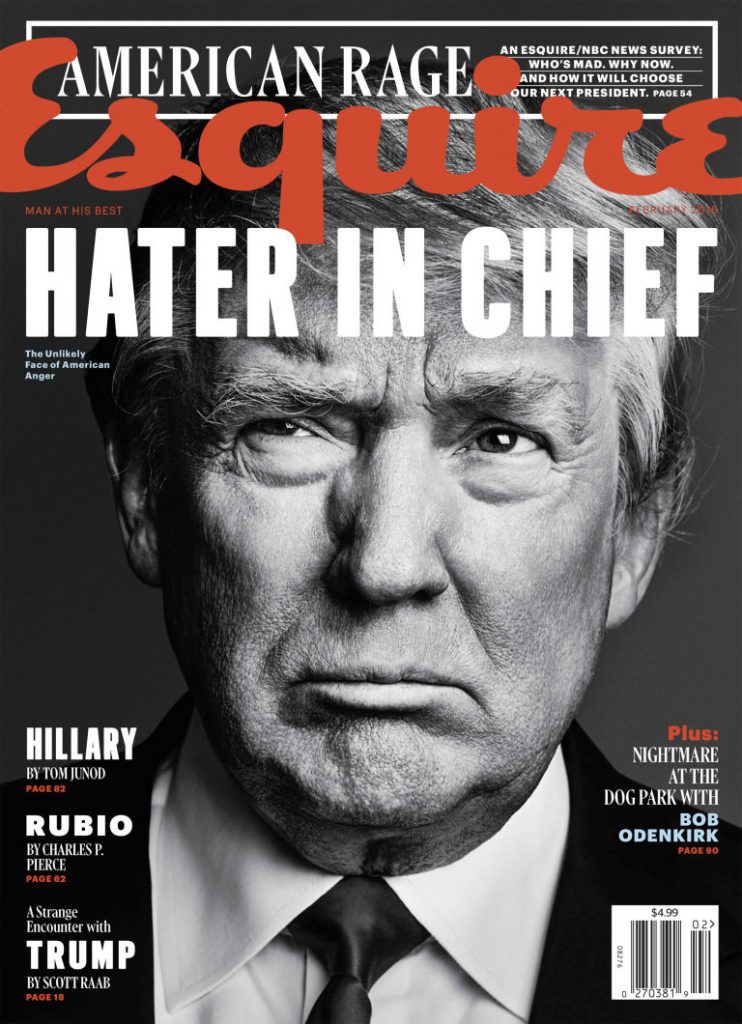 I open the magazine and read the first article. It’s a liberal magazine, and, like always, I’m enjoying it. Reading what people who disagree with me have to say about the current state of the world is invigorating.
I open the magazine and read the first article. It’s a liberal magazine, and, like always, I’m enjoying it. Reading what people who disagree with me have to say about the current state of the world is invigorating.
When I was younger, it sometimes made me angry. A decade later it made me want to argue. Nowadays, I find myself laughing a lot. Or, once in a while, surprised by a new idea that deserves serious consideration.
For example, the first magazine I read begins with a long editorial about how the economy is “on the rise.” Markets are getting more good news than they have since 2008, and not the “media-spin economic upturn news” that Washington loved during the Obama years, but that always turned out to be false. This time it’s about a real upturn it seems.
Still, the editorial warns, the danger is that people are going to think that things like Brexit and actions of the Trump Administration are responsible for the good economic news. These are all coincidences, apparently, according to the article. Any intelligent person, the magazine seems to be communicating, will clearly realize that there is little or no correlation between Obama/European Union policies and the economic malaise that accompanied them, and the a significant economic upsurge following Brexit/Trump.
My grin turns to laughter. Are they serious? No correlation? Funny. Ironic, but humorous. The same magazine issue has the following question on the front cover: “Is the pope Catholic?” Note that the word “pope” isn’t capitalized. The article takes this question seriously—analyzing the ways the current Pope is rehashing many ideas long considered sacrosanct at the Vatican. This part isn’t funny. Interesting, and important. But I’m pondering, not laughing.
Another article proclaims: “From deprivation to daffodils… All around the world, the economy is picking up.” The cause of this, we are assured once again, has nothing to do with Brexit or conservative policies. In fact, we’re told, these things caused “jitters” and kept the economy from improving sooner.
In the same magazine, we are warned about populist uprisings from the Netherlands, Mexico, and Scotland—all part of a “dangerous” trend. (In fairness, if you favor the elite classes and a system that benefits elites above all others, it actually is a dangerous trend.)
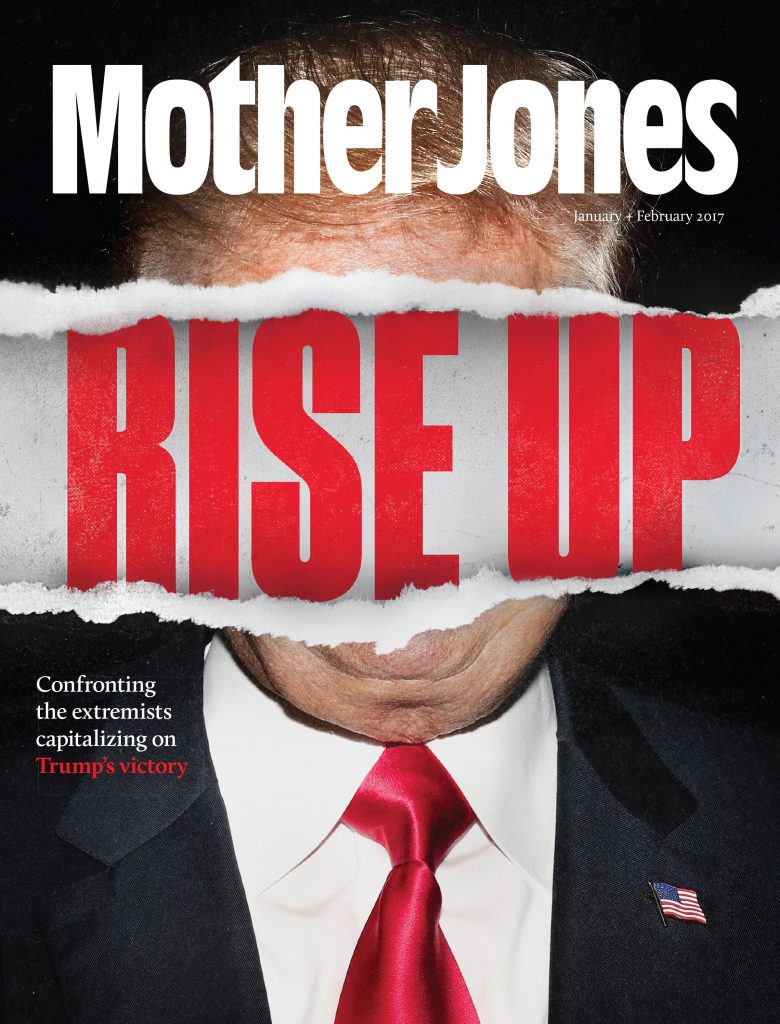 I finish this magazine and pick up the next one. Its purpose, apparently, is to find clever and original ways to criticize Donald Trump and anyone who didn’t happily vote for Hillary Clinton or Bernie Sanders. A very popular hobby these days.
I finish this magazine and pick up the next one. Its purpose, apparently, is to find clever and original ways to criticize Donald Trump and anyone who didn’t happily vote for Hillary Clinton or Bernie Sanders. A very popular hobby these days.
But this publication does it in such cerebral language that it’s really fun to read—as if reading it, just soaking it all in, must mean you are one of the smart people, the enlightened, the few, the wise. I do enjoy the creative, engaging writing, even as I find myself disagreeing with much of the content.
I start laughing again. After all, the articles work so hard to sound impartial, journalistic, even erudite. But their frustration and anger with the last election, and the current Administration, shows through on nearly every page.
For example, I read paragraph after paragraph of seemingly objective, unbiased prose (“Just the facts, ma’am, just the facts…”), then I run into words like “vengeful,” “binge,” “vindictive.” The reader is being swayed by largely journalistic writing peppered with emotional triggers. I like it. I mean, it’s interesting, and funny. Besides, the American people are smart enough to see right through this kind of bias, whatever elites think of them. Still, this kind of spin is an art, and the articles I’m reading are skillfully crafted to sway their reader—just like most of the television media.
Pundits on the Right try to do this as well as those on the Left, but the Left has more true artists—masters of this process. Good for them. Seriously. I’m genuinely impressed. Conservatives really do need more effective artists, and more appreciation for well-crafted symbolism.
The End of the Expert
On the less artistic, more direct side of things, one article calls President Trump: “an untruthful, vain, vindictive, alarmingly erratic President.” My first thought is that this is mean-spirited. But wait. I re-read the list of criticisms more carefully. Actually, I tell myself, most of this is fairly accurate, with one exception: What liberals call “untruthful” in Trump is often more a case of inarticulate.
President Trump frequently uses imprecise language, to the point of confusing. It’s a wonderful blessing for his opponents. But I don’t think he knowingly lies as much as the media claims (not in the way career politicians so frequently lie: “If you like your health care provider, you can keep your health care provider” or “insurance premiums will go down,” or “the Benghazi attack was caused by a video made in California,” or “I did not have sex with that woman.”)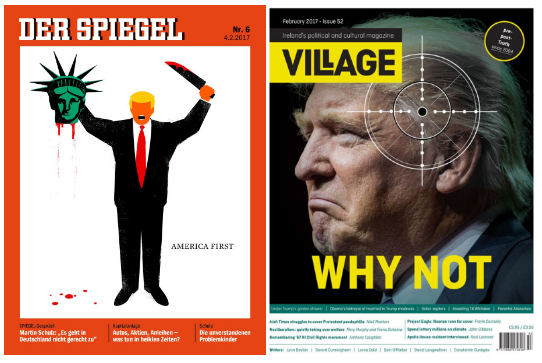
But the other things on the list are fair game. Vain. Vindictive. Erratic. The President has exhibited all of these traits at times. I’m laughing again as I ponder this twist—because the real joke is on elites. Seriously: Why did the American people elect someone who is so openly vain and vindictive at times?
This is pretty funny, when you think about it. Liberals want these things to convince Americans that he shouldn’t be president. But those who elected him don’t really care about these things.
In short, liberals seem to want a president they can look up to, hold up as a role model, even canonize (e.g. FDR, Obama). Like medieval courtiers at the palace, they want to put their king on a pedestal. “He’s such a good and great man. She’s such a good and great woman.” They want Josiah Bartlett back in the White House. Or at least Michael Douglass. Or, better still, Kevin Klein’s “Dave”.
Conservatives aren’t thinking of anything so lofty. They don’t need a prophet or a saint in the Oval Office. They just want a president who will reboot the economy and make us safer in the world. Even if he acts like a jerk sometimes.
Liberals don’t seem to get the joke. It’s funny. Think about it: the voters in a majority of states preferred someone who is sometimes vain and vindictive over the elite’s favorite choice—a lifetime politician who checked off all the boxes and did everything the Establishment considers necessary to be in the Oval Office. The voters wanted the exact opposite. The irony is rich.
I finish the second magazine and take a long, deep breath before picking up the next one. But something I just saw keeps nagging me, so I go back to the magazine and look for a certain ad.
Ah…there it is. A promotion for online courses from Julliard. Open to all. “Learn from the Julliard faculty,” the ad proclaims, “classes include…Music Theory 101, Sharpen Your Piano Artistry…. No audition required.” I can hardly believe it. Doesn’t this fly in the face of the elite prime directive: “Rule By Experts—In All Things”? Do we really live in an age where MIT, Harvard and Julliard offer open enrollment classes to everyone? What happened to rule “of the experts, by the experts, and for the experts”? Elites are using technology to promote the appearance of democracy while still focusing on elite rule in every sector.
I open the third periodical in the pile. The lead article picks up right where the other magazine left off: “How Americans Turned Against Experts.” I study this article closely, taking notes in the margins, and then I read a half-dozen others. Apparently, the people just aren’t all that impressed with rule by the experts anymore. (“What have all those experts done for us?” millions are asking. “And why can’t they fix our national problems? What’s taking so long? In fact, why do things keep getting worse in so many ways? If these Ivy-trained experts with all their lofty titles and salaries are so good for America, why don’t they fix things?”)
Cause and Effect?
Finally, I pick up the last magazine in today’s stack. Several of the articles are intriguing. For example, I read: “Poverty has profound effects on the size, shape and functioning of a young child’s brain. Would a cash payment to parents prevent harm from the experience of being poor?” At first blush, it is sad that economic struggles have negative effects on early childhood. It is also not surprising that progressives think passing out money would fix this problem—easily and effectively.
But there’s more to this than initially meets the eye. I’m reminded of the economic idea of “helicoptering”: if the economy is struggling, dump cash from helicopters to poor families. They’ll spend it, and this will provide increased demand, supply, more jobs, and an improved economy. Of course, economists don’t suggest literally throwing cash out of helicopters (like turkeys on WKRP in Cincinnati), but rather depositing money directly into the accounts of people below a certain income level.
Conservatives tend to reflexively balk at such proposals, because they believe in the law of unintended consequences. In other words, paying people without asking them to work for it makes more people want to do nothing, and more citizens become increasingly dependent on government handouts—leaving the productive people to fund it all. Not good for society.
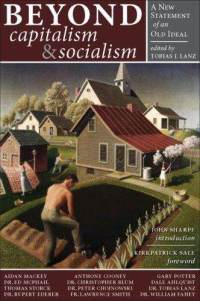 On the flip side, I like to point out to conservative friends that one of the early proponents of such financial “helicoptering” was Milton Friedman. Why? In truth, the direct cost of giving money to poor parents is far less than the amount currently spent by governments to provide all the services they and their children receive.
On the flip side, I like to point out to conservative friends that one of the early proponents of such financial “helicoptering” was Milton Friedman. Why? In truth, the direct cost of giving money to poor parents is far less than the amount currently spent by governments to provide all the services they and their children receive.
If we’re going to offer a lot of socialist programs, let’s at least be efficient.
The real answer is to get rid of socialism altogether. Besides, in the long term, there’s a deeper problem. The idea of giving cash to poor parents in order to help their kids either assumes that the parents will spend it in ways that actually address the problem, or assumes that the government will monitor such spending and force parents to use it “effectively” (an escalation from helicopter parenting to “helicopter government”).
Reading the article even more closely, it becomes clear that there “are dramatic differences from person to person.” Meaning: Some people raised in poverty have normal or even above-average brains, but on average they are smaller, less developed. I’m not laughing anymore. This is deep, and important. The biggest challenge seems to occur where single parents are forced to work so much to pay the bills that there is little time for interaction with young children. The negative consequences last for generations.
Surely our society can find ways to deal with this. Sadly, in our modern world, any talk of real problems seems to turn into demands for more government programs–as if government is the only way to fix anything.
We’re all at fault here: liberals tend to want government to solve everything, and conservatives often fail to provide non-governmental solutions to real challenges that should be addressed by the private sector. Both sides just end up pointing fingers and criticizing, while the problems remain (or grow).
The article provides a lot of interesting details and proposals. I don’t agree with everything I read, but it makes me think outside the box. I finish the magazine and lean back in my chair.
The New News
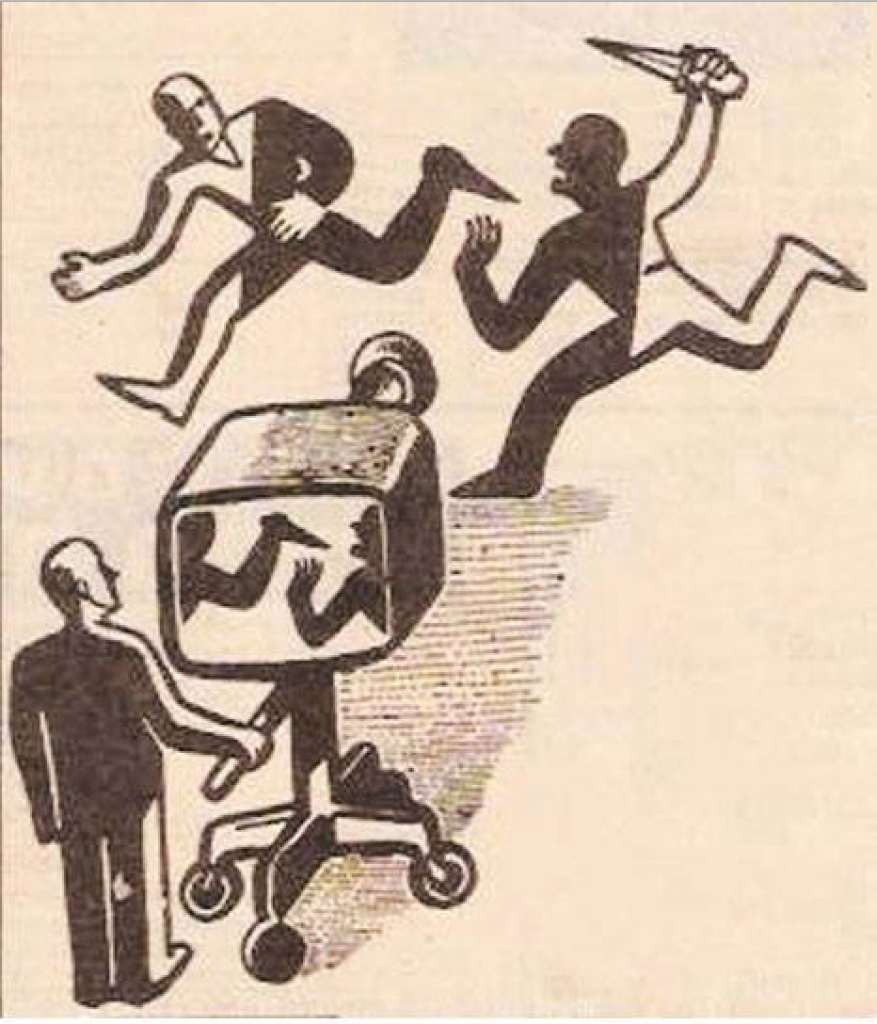 We have a major problem today with media, but it’s not what most people think. The biggest issue is the fact that few of us are reading enough news. Forget the electronic news. And forget newspapers. Both are too trapped in today’s 24-hour news cycle—and the race for ratings. We need to read bigger ideas, and from a variety of sources.
We have a major problem today with media, but it’s not what most people think. The biggest issue is the fact that few of us are reading enough news. Forget the electronic news. And forget newspapers. Both are too trapped in today’s 24-hour news cycle—and the race for ratings. We need to read bigger ideas, and from a variety of sources.
Readers of quality news magazines and journals are less easily manipulated than those who get their news from TV or social media. Such readers can more adroitly identify spin or media agendas and see right through them—then grin, or laugh, or decide to study more about a certain topic.
If you’re getting most of your news from TV, newspapers, online headlines, or social media—consider moving on. Start reading longer articles, in publications or posts that treat things more deeply, like Foreign Affairs, The Economist, The Harvard Journal of Law and Public Policy, Vital Speeches of the Day, and issue-oriented online sites and articles.
Read things that make you think, really ponder and analyze. And read a mix of conservative, independent, and mainstream sources.
If you do decide that you prefer to get your news from TV or online news sites, go to the business news. Where the regular news tends to focus on network political agendas, thereby frequently skewing the day’s news stories, the business news will tell you how the economy is actually doing and how today’s events impact it; this is nearly always a more accurate indication of whether to be worried or optimistic about the news of the day. The business news usually tells the story more directly, with less partisan slant.
Whatever your political views, knowing how to get the real news, to see through the media and understand what’s really happening in world events, is part of being an informed and good citizen. All of us benefit from people who do media right.
These two simple changes (1-Reading deeper issue-oriented articles rather than watching or reading the daily event-focused articles, and 2-Going to the business media rather than the political media for a clearer understanding of the news) will drastically increase how well each person understands the news and knows what’s actually happening in the world.
If you stick with the daily TV news or newspaper (or online equivalents), you are always in danger of being another one of those people who actually believe what they hear on the nightly news. In other words…grossly misinformed.
(For further helps on where and how to get the real news, check out my Current Events Course at The Leadership Education Store. This will help you significantly upgrade your ability to see through media spin and know what’s really happening in the world.)
Category : Aristocracy &Arts &Blog &Business &Citizenship &Community &Culture &Current Events &Economics &Featured &Generations &Government &History &Information Age &Leadership &Liberty &Politics
Increase Your Influence By Ian Cox
April 19th, 2017 // 8:05 am @ Ian Cox
by Ian A Cox
The Biggest Question
Wow! That’s deep.
The thought kept recurring as I read. The article, written by an innovator, filled me with numerous ideas—old and new—about Thoreau’s Civil Disobedience. The author showed how this classic work, and others like it, are relevant to national events right now, including the famous–not to mention great–maxim: “That government is best which governs least.”
The author showed how this applies to our current national challenges. The biggest question that came to me as I read was something we all need to consider:
“How can we increase our influence in a world that seems to be heading in the wrong direction?”
This isn’t just a rhetorical question. We have more power than we might realize. The struggle for freedom resets with every new generation.[1]
We are always one generation away from potentially losing our liberty. Education is key, and understanding freedom is a must for those who hope to protect and spread freedom.
Moreover, the battle for freedom resets in certain predictable ways. In his book We Hold These Truths to Be Self-Evident, Oliver DeMille gives some perspective on this fateful struggle for freedom in the United States after we gained our independence.
Here’s a summary:
- The House of Representatives was the first to vie for power, as early as the 1790’s. But the executive branch flexed its muscles as well and managed to stop the over-reaching House.
- In the early 19th Century the Marshall Court pushed for widespread control, but the Presidents during the time were able to largely obstruct court expansion (checks and balances = obstruct).
- Next, the mid-19th Century saw a resurgence of local governments as prejudices ran rampant and public servants and jurors turned a blind eye to injustice. This was eventually curbed by the exodus of many oppressed groups and minorities to the west, which created new regions and states, increasing the federalizing power (the Electoral College).
- The States then pushed for dominance of power in the mid-to-late part of the 19th Century, but were beaten by the combined federal powers of the three branches of government.
- An Aristocratic Senate was the leading power center of the early 20th Century, but it only gained influence where the Court allowed.
- The Executive branch stole the baton from the Senate in the settling dust of the Second World War, and this continues today. In fact, its aggressive competitor for power is the Supreme Court—both take turns usurping influence.
A great strength of the United States Constitution is the multi-layered governmental system it created, including a network of intricate checks and balances, as outlined above. The price of human nature and usurping freedoms from others is that power doesn’t decrease; it only transfers to other branches that tend to increase their power in order to bring back a proper balance. In each of these eras a complete takeover was thwarted, but power was centralized and freedoms gradually slipped away.
Deciding Our Fate
This power pendulum persistently swings back and forth, from one group to another, until more individuals take up their true duties as citizens (real influence).
This can occur 1) peacefully, 2) when a violent reset happens (like the Civil War), or 3) when our society collapses and something new is established out of the ashes.
The peaceful option is clearly preferable.
These issues and problems are not merely something we need to think about for today and tomorrow. We must embrace these things with a generational perspective. Because they exist on a grander scale, we have to ask the important questions. Are we solving the problem, or are we stopping one problem by creating a new one?
For example, the Civil War was practically written into the original Constitution; it was a paradox in the fabric of the whole system. Either the joint founding ideals of “all men are created equal” and “life, liberty and the pursuit of happiness” had to be done away with, or slavery had to go. Both could not ultimately flourish together.
Likewise, the Mexican-American War (against Spain) was guaranteed as soon as the Monroe Doctrine was adopted. And, once we decided that extensive international relations via broad treaties were in our best interest, we accepted the wars of Europe as our own.
Phillip Bobbitt’s Shield of Achilles shows how we inadvertently embed the battles that future generations must fight into the chinks and weaknesses of the systems and programs we create today. The establishment of organizations like the Federal Reserve, Internal Revenue Service, and International Monetary Fund created the inevitable outcome of hyper-inflation, boom-bust cycles, and fiat currency, to name a few.
To a great extent, we are always creating our future crises.
Is this the society and government we want to fund with our taxes? Is this the group we want to endorse with our good name? To stand with confidence, with a clean conscience, and to fulfill each of our moral obligations, we must ask ourselves the hard questions. Here I reiterate the innovator’s call to action; we must not be the ostrich with our heads buried in the sand–but we also must avoid falling victim to a conquering Caesar (or a Byzantine bureaucracy[2]).
Revolutionary Options
There are a few options that have historically worked in changing a society’s fate. Some of these alternatives are still very possible today, while others are becoming less and less available to most people. Here’s a breakdown of the top three from history:
1) Exodus
You pack up and leave, in hopes of finding a better place to restart. This has happened successfully many times in many cultures, but it is risky. Today there are very limited options for this choice. We have different forms and styles of government to pick from, but there isn’t untamed land that can be cultivated and founded from the ground up.
2) Violence
This is probably the most common form of rebellion. A group raises up arms and fights, in hope of overthrowing or removing tyrants. This method usually fails—not that it doesn’t remove the tyrants from power, but it typically breeds revolution after revolution[3] and more often than not, ends with some new tyrant. In most cases, little actually gets fixed.
3) Civil Influence
In the modern world, civil influence has become the regular, expected, and non-violent form of change. This was brought about in large part by the spread of more democratic forms in societies and governments. As the people’s standard of living, education, and access to information worldwide increases, so does their ability to get involved and flex their muscles as the first and foremost branch of any governmental form.[4] This is the at times slowest method of change, but often the most successful in the long-term.
Where civil influence was once answered with the death sentence (if you weren’t in the ruling class), it is now a real and viable option for any member of society to initiate the spark of change. This requires us, as John Locke argued, to be tolerant. Like the original thirteen colonies, we have now reached a point where the regular people need each other in order to get the right things done. This means we need to work with people who don’t always perfectly agree with us in every detail—or even in many details.
Now, this doesn’t mean we don’t stand for what is right or shirk our moral duties, but rather that we pick our battles. If we are constantly coming out against everything that peeves us, nobody will listen when it really matters (e.g. “The Boy Who Cried Wolf”). Some things will absolutely happen in society that we dislike. But we can’t let disagreement make us disagreeable. It’s actually good that there are differing views on important issues. In fact, we should have a Hamilton and a Jefferson at each other’s throats in cabinet meetings, Congressional floor debates, and Supreme Court decisions–because it leads to more considered and effective solutions in the end.
More importantly, to really have influence, it is helpful not to be the guy who people hate at parties, always harping about the latest issue. Build friends, foster relationships, and focus your political influence when the time and topic are right. That said, be ready and watchful. The right time and topic will come.
Hope for a Better Future
A government by the people will largely be a reflection of the people. It could be a great government if a Moses, Marcus Aurelius, George Washington, Confucius, Muhammad, Cincinnatus, etc. is at its head; but as history has shown, it wouldn’t last. Maintaining a long-lived and successfully free society demands that a lot more citizens think and understand the principles of freedom (at the same level as, or better still, higher level than, our political leaders).
If you and I do this and we invite our communities to do the same, if “we the people” take on the responsibility to govern ourselves, we can and will have the best type of government—one that need only govern least. We must stop passing the buck on the hard things, or someone else will gladly take them up and decide for us. We the people, the first and original branch of government, have always had the most power to check and balance our government, and that hasn’t changed in today’s world.
An elite class can only rule when most of the citizens don’t have the same level of learning.
With persistence, civil influence really can provide proper checks and balances against the potential threats to freedom that naturally exist wherever power resides. In truth, it’s ultimately the only thing that does. It can be difficult. It takes patience, vigilance, study, understanding, and sacrifice.
But it does work.
Notes
[1] See, for example, the struggles of ancient Greece to unite city-states (unity vs. sovereignty), and the same issues in the nations of Europe and later the American colonies.
[2] A much more likely outcome in our situation.
[3] Consider the French Revolution, the Russian Revolution, the Chinese Revolution, etc.
[4] From the American Revolution to Brexit.
About the Author
Ian A Cox is an entrepreneur and consultant who mentors leadership and the Liberal Arts for students and business men and women of all ages and levels. Ian is a popular keynote speaker at educational and business events. He loves reading, basketball, and discussing deep ideas on history and political science. Ian and his wife Emma have two sons.
Category : Aristocracy &Blog &Citizenship &Community &Constitution &Culture &Current Events &Economics &Education &Generations &Government &History &Independents &Information Age &Leadership &Liberty &Mini-Factories &Mission &Politics &Prosperity &Statesmanship
How is the Trump Administration Doing?
April 11th, 2017 // 10:40 am @ Oliver DeMille
“No business plan survives
first contact with the customer.”
—Steve Blank
Party and Purpose
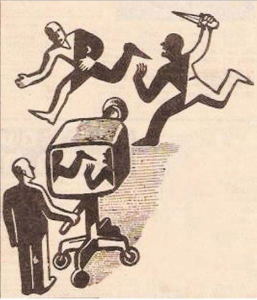 Alexis de Tocqueville famously taught that all governments and societies are divided into two major parties—the party of aristocracy and the party of the people. Another way to describe this reality is that one party is always the party of elite governance, while the other is the party of democracy.
Alexis de Tocqueville famously taught that all governments and societies are divided into two major parties—the party of aristocracy and the party of the people. Another way to describe this reality is that one party is always the party of elite governance, while the other is the party of democracy.
The first, run by elites, seeks to keep things the same, consistently increasing its own power little by little. The second sees the current government and system as overreaching, corrupt, and untrustworthy, and wants to shake things up in order to give more power and economic opportunity to the masses.
This battle is constantly in motion. Sometimes it fights openly, while at other times it simmers and strategizes below the surface. But it is always there, the elite side strategizing ways to gain an edge, move ahead, and increase its influence over the regular people.
Most people see national political party divisions in literal terms—the Tories vs. Patriots, Federalists pitted against Anti-Federalists, Democratic Republicans against the Whigs, Republicans vs. Democrats. But the real battle—between those angling for elites to obtain more power, and those seeking more power for the people via a reduction of elite influence—is seldom the same thing as a clean divide between official parties.
The Five-Headed Monster
Today the Democratic Party is divided between the elitists (e.g. Obama, Clinton, Schumer, etc.) and the revolutionaries (e.g. Bernie Sanders, Elizabeth Warren, etc.). Likewise, Republicans face a similar divide: elitists such as Bush, McCain, Paul Ryan, or Mitch McConnell versus revolutionaries like Donald Trump, Steve Bannon, Ted Cruz, Rand Paul, or Newt Gingrich.
Moreover, because revolutionaries are…well…revolutionary, they care less about teamwork and more about principles and goals. This means they are constantly pointing out the differences between themselves and others, picking fights not just with the other party but with members of their own party as well. Indeed, Rand Paul or members of the Freedom Caucus often have more in common (in some ways) with Bernie Sanders or Elizabeth Warren than with institutionalists (and fellow Republicans) like Paul Ryan or John McCain.
Add President Trump to the mix, with his blend of generalized idealism and big-idea pragmatism, and his inner team is far removed from the other four groups:
1) the Paul Ryan/Mitch McConnell/John McCain wing (Republican, elite)
2) the Rand Paul/Ted Cruz/Freedom Caucus wing (Republican, revolutionary)
3) the Warren/Sanders wing (Democratic, revolutionary)
4) the Schumer/Pelosi/Obama/Clinton wing (Democratic, elite)
This fifth group, the Trumpites (Republican, revolutionary), share neither philosophy nor methodology with the Ryan/McConnell group, nor philosophy, methodology, or even the ability to be civil with the Pelosi/Schumer/NBC/CNN group. On the other hand, they share a revolutionary “power to the people” approach—but almost nothing else—with the Paul/Freedom Caucus and Warren/Sanders groups.
Our government is now a five-headed monster, with constant battles between these five factions. Indeed, one of the biggest ironies of our time is that all four of the other groups battle against the Trump Administration—in differing ways, to be sure—without working together or agreeing with each other. There is, apparently, no coordination between the four groups; they largely despise each other. They seem to like Trump even less.
Even More Factions
A sixth group consists mostly of long-term bureaucrats who fill various government positions and make up the large bulk of federal employees—and do the lion’s share of the actual day-to-day work, in all three branches of government. Some of these are aligned with one of the other five groups, but many are more focused on their own agendas and aggressively (or, when it suits them, passive-aggressively) pursue their own interests. This is known by revolutionaries as “the deep state.”
There is, in fact, a seventh group with yet more conflicting agendas: the various special interests, lobbying organizations, agents of corporations and numerous non-profits, and others who keep K Street and its offshoots busily attempting to sway the government this way and that. The combined numbers of this many-tiered faction (in personnel and budgets) rival and in some things outpace that of the federal government. Add the national media from all sides, with myriad projects and agendas, to make an eighth powerful influencing faction.
The resources and expenditures that go into all eight groups and their efforts are astronomical. This is clearly the kind of “booming, buzzing confusion” that establishment thinkers in the 1970s predicted would allow the elite classes to rule the nation—quietly, firmly, from behind the scenes. The reason all eight groups (and the many splinters and sub-groups) consider such Herculean effort and expense worth pursuing is that the spoils—federal dollars and global power—are even more excessive.
Eisenhower called the 1950s iterations of this kind of governance “The Military Industrial Complex”, what Emerson had earlier referred to simply as The Establishment. It has grown exponentially since these phrases were coined. More recently, Donald Trump referred to it as “The Swamp”, and promised to “drain” it.
But we’ve heard such promises before. Reagan assured us that he’d do the same thing, but instead the size and scope of government greatly increased during his tenure. This is a recurring theme. Candidates have frequently promised to prune the national debt and the out-of-control federal Leviathan back to more manageable levels, but once elected they have been unable to stem the tide of growing government.
Bill Clinton even claimed that the “era of big government” was “over”, just at the time he presided over a huge expansion of Washington’s Byzantine federal bureaucracy, debt, and reach. Both parties have exacerbated this problem. So far no party or leader—in the White House or on Capital Hill—has reversed or even noticeably slowed the growth of government overreach or the national debt.
How to Evaluate a President
How is President Trump doing? Forget how the media—liberal or conservative—answer this question. The truth is that our leaders can only be truly measured against this one great national imperative: get a handle on the out-of-control expansion of debt, bureaucracy, and big government. It is in this context that President Trump, Republicans in Congress, and all who lead the federal agencies and state governments must be judged.
No presidential administration or Congressional tenure since the 1920s has effectively scaled back the federal government or its mounting debt. During the Obama era, we more than doubled our troubling national debt. Before that, the Bush years had a similar disappointing record (much of this was hidden by keeping around $3 trillion of expenditures in Iraq and Afghanistan officially “off budget”; add this number and all other “off budget” expenses to any national debt figures provided by Washington).
In short, the elites are winning the war for the future of our nation. If they get their way, the government will continue to grow, continue to increase our debt, and elites will keep consolidating their influence and power over the masses. Indeed, most people don’t clearly understand the reality: The government taxes the middle class to pay its debts—most of the money is owed and paid to members of the elite classes (both in the U.S. and abroad).
For elites, in other words, a growing national debt is their personal asset, an IOU from the American middle class and our children and grandchildren.
The mainstream media generally ignores this real story, instead preferring to issue reports such as the following:
- “Trump’s failing presidency has the GOP in free fall” (The Washington Post)
- “After 10 weeks, Trump teeters on the brink” (CNN)
- “Trump’s outlook going from bad to worse” (CNBC)
More conservative outlets, such as Fox News, who first pointed out the three headlines listed above as a growing trend, show a more balanced view, but the other networks and publications aren’t convinced. Listen to mainstream media reports and you’d think the Trump Administration is facing a full implosion.
But this simply isn’t true. The White House reports are very different, and conservative media reports are the opposite. For example, a Fox report, citing Pew Research, noted that 58 percent of Americans now think the current economic situation is good, while only 40 percent see it as bad. This marks the “best economic assessment since 2007” and “manufacturing optimism is at the highest level in twenty years.” (Fox) Why doesn’t the mainstream media report this openly? It’s some of the best news that’s occurred in a decade. Apparently only Fox and other conservative media are even interested in what’s actually happening on this front.
For many years I have recommended that people get their news from both liberal and conservative outlets, carefully comparing the differences in tone, what is reported as fact, and what is left out of the news. Now such an approach is essential. Those who only listen to the mainstream media only hear a selectively chosen portion of reality.
But the worst problem in all of this is the inability of Washington to tackle and solve big challenges. Why are the eight groups listed above unable or unwilling to come together and fix things? Why, when anyone sincerely attempts to solve our problems and get things going in the right direction, do so many block the path and refuse to allow real change?
The answer is, as one senator put it long ago in response to Andrew Jackson’s election win: “To the victor belongs the spoils.” Indeed, as long as the elite classes and their professional/expert/media collaborators enjoy wealth, status, influence and power from the current system, the less interested they are in change. They like the current system—in this system they rule and the masses unwittingly serve them.
Roadblocks and Bridges
Anyone (Left or Right) who effectively attempts to change this will face the full wrath of elite power: media, money, litigation, vilification, etc. The elite power machine is now in full swing. Indeed, it has been for a long time, consistently increasing elite power and influence, moving always toward higher levels of elite rule over the regular people.
If the masses knew what was happening to them, some say, they wouldn’t stand for it. But the people have their own struggles in today’s world. Specifically, a large majority of the people want the government to scale back and end government overreach, but they don’t agree on what budgets and programs should be cut. Nearly everyone wants major changes in our government, but almost no individual voter supports a reduction or termination of any government program that directly benefits him/her personally. Thus, no deal gets done, not in any big or lasting way.
Given all this, here’s what we now know about the Trump years, even though we’re only a couple of months into his presidency:
- The intense media war against anything and everything Trump is just warming up. It will last a long time. Indeed, those fueling it will never give up. The truth is, the intensity is going to drastically escalate in the months and years ahead. If you think it’s been bad so far, just wait.
- The good news in all this is that more and more citizens, on all sides of the political aisle, are realizing just how untrustworthy much of the media actually is. The mainstream media is losing its once-solid monopoly over the way most people think about important issues. This is a win for the people.
- The battle between those who want to increase elite power and those who want to increase the power and economic opportunity of the masses is the real issue, and it is much bigger (though not nearly as open or vocal) as the conflict between Democrats and Republicans. In fact, the partisan battles and skirmishes are largely a smokescreen, a distraction meant to keep the American people from focusing on the real problem and the real goal: to bring more power back to the people.
- Both of the major political parties are dominated by elites, who support elite goals and don’t want the system to change very much. The Establishment is strong and growing stronger.
- The Establishment is, in fact, much stronger than candidate Trump realized, or at least more than he let on. His promise to bring real change to Washington is going to be monumentally difficult. Candidate Obama also once promised real change, and assured us that “Yes We Can.” But the problems, debts, and divisions in Washington got much worse during his presidency. The same happened to Bush, Clinton, Bush, Reagan, Carter, Ford, Nixon, Johnson…
To Fix or Not To Fix
To get different results, the Trump Administration will have to do something different. Probably, to be realistic, it will need to do something drastically different. It is unclear what this will be, or if they’ll figure it out. But this is the only thing that will make the years just ahead any different in substance than the last four decades. According to the media, nearly everything about the Trump era is different. But according to the size of the federal government and our national debt, things are still headed in the same direction. The real Trump legacy will depend on whether or not the President can actually reduce the debt and downsize Washington.
To start this process, for example, it is likely that the new Administration will now seek friends and allies in surprising places. The first attempt at repealing and replacing Obamacare showed the White House that there is more going on beneath the surface in Washington than the obvious division between Democrats and Republicans.
Much more. And as long as those who want to reduce elite power and give more power and opportunity to the people do things the same old way, they’ll get the same old results. The glaring truth: Elites in the GOP are as much the enemy of needed change as Democratic elites.
Again, to really bring change, something very different will be required.
The question is, has the new President and his team figured this out yet? And do they know what to do? Truly out-of-the-box originality is needed if they are to actually deliver on their promises. We don’t know how President Trump is doing so far, because we don’t know if the President and his team have made this transition yet—or if they ever will.
Real Change?
I think it’s possible that they are trying. They showed a penchant for surprising innovation and inventiveness during the election—bringing a win that shocked the old-way establishment. But bringing real change, and making it actually work, with so much stacked against them, so much leaning in the other direction, is going to take a miracle.
So, am I hoping the new Administration pulls it off and reduces the size of government and the national debt? Absolutely, yes. First, because our nation desperately needs it to happen—whoever leads it. I would have been thrilled if Obama, Bush, Clinton, or anyone else did it. It simply must be done. Our future literally depends on it.
But there’s a second reason I hope the Trump Administration succeeds and makes it happen. Regardless of how anyone feels about Donald Trump, a lot of people voted for him as a last ditch effort to bring real change. In specific terms, this means reversing the debt and decreasing the size and overreach of government.
If this doesn’t happen, a lot of voters are going to entirely give up. If and when the regular people in America lose hope and decide they’ll never get the kind of government they want, we’ll see the full implementation of elite rule. If this happens, we’ll be an aristocracy, in law as well as culture, within a few short years. Such a development will spell the end of the American Founders’ dream, and the end of many of our freedoms.
(For more on this topic, see book The Coming Aristocracy, by Oliver DeMille. Available here)
Category : Aristocracy &Blog &Citizenship &Community &Constitution &Culture &Current Events &Economics &Generations &Government &History &Leadership &Liberty &Politics
Good News: The Republican Health Care Bill Failed
April 5th, 2017 // 7:42 am @ Oliver DeMille
“Regular people were cheering me on.
Elites were shouting me down.
I knew I was on to something.”
—Daniel Pink
The Plan vs the Goal
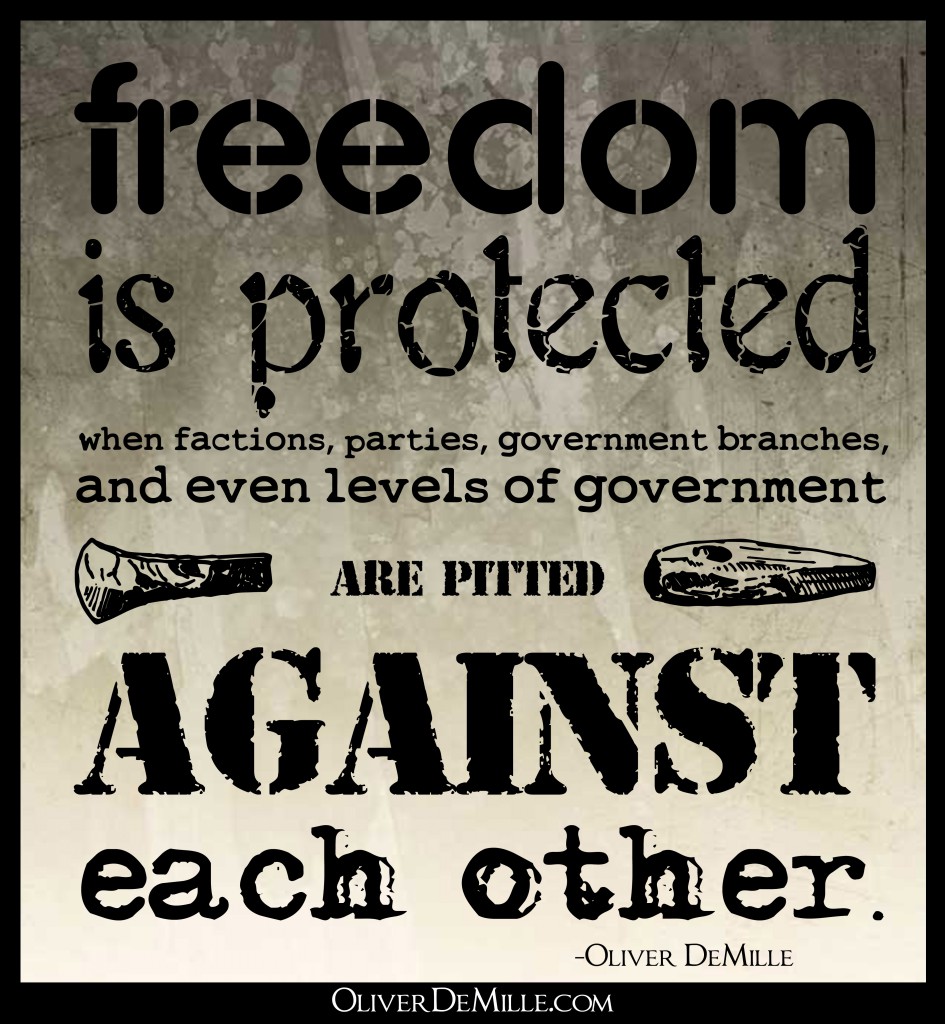 Obamacare is a disaster. Rising premiums, decreasing quality of care, overreaching regulatory coercion, major expense increases to taxpayers, government red tape that is hurting the economy—and will do even more damage when new mandates kick in this fall. None of these are helpful.
Obamacare is a disaster. Rising premiums, decreasing quality of care, overreaching regulatory coercion, major expense increases to taxpayers, government red tape that is hurting the economy—and will do even more damage when new mandates kick in this fall. None of these are helpful.
But as problematic as Obamacare is, the last thing we need right now is another bad health care law, one steeped in government regulations, confusing, and hastily thrown together—leaving executive branch bureaucrats to fill in the blanks.
The Freedom Caucus was right. We don’t need another bad healthcare law. Such a result would be a disaster for conservatism, and a disaster for the entire nation and our economy.
The new healthcare proposal was significantly better than Obamacare. But this shouldn’t be our standard for something so important. Yes, Republicans promised to fix healthcare, but doing so piecemeal and hurriedly—mainly to score political points—isn’t the right approach. The goal should be an effective, well-conceived healthcare system that really works.
The Freedom Path
Leaving so many things out of the bill, to be later decided by the implementing agencies, means that when the other party wins an election, it can significantly restructure the whole healthcare sector without any say from Congress. This approach creates uncertainty, meaning that health/insurance companies and businesses won’t fully invest in lasting solutions. Not a good start to important legislation.
We need to get this right. And that means the legislative branch should do what it does best: think through every conceivable possibility, argue the varying sides of the issue, and draft a plan that has broad and deep support. Ramming something through more quickly might impress the voters, but that only lasts if the product is effective and sustainable.
Congress has time. Not a lot, but enough. It needs to work on this vigorously until it gets done—but do it right.
On an even larger scale, the initial failure of this bill to even come up for a vote may indicate of a larger victory for the American people: the rebirth of the House of Representatives.
For years the House has played bush-league ball, afraid to take on the major league challenge of the White House–or ineffective when it tried. The media has repeatedly put pressure on the House any time it attempted to use the purse strings (it’s most important Constitutional check on the Executive Branch), and, all too often, the House has caved.
But this time, when the opponent wasn’t the media but rather the White House and the House leadership, the supporters of freedom held firm and refused to allow a bill that would have failed to truly fix the problem. That’s a victory, no matter how the media or the White House spins it.
Purpose and Leadership
It raises serious concerns, such as 1) Why can the House stand against the President, but not against the media or the Court?, and 2) Why is the House leadership so determined to fight against real change?
But even with these problems, it’s nice to see the House reasserting itself in national leadership. Remember: the framers made the House the true arm of the people on the federal level. When the House doesn’t stand up against usurpations by the Executive Branch (as well as against the Senate, the Court, and in the face of an antagonistic media), the whole nation is drastically weakened.
That said, this is only a small victory. It remains to be seen whether this spark of House leadership will be fleeting or something more permanent. It is also unclear whether the House will now continue to lead on the issue of Health Care; it defeated one bad plan, but will it go on to effectively pass a good plan? That’s the real test.
If it does, we may be at the cusp of a new era of leadership from the House. If not, it will emerge from this year’s failures weaker than ever.
Category : Blog &Citizenship &Constitution &Culture &Current Events &Government &History &Leadership &Liberty &Politics

